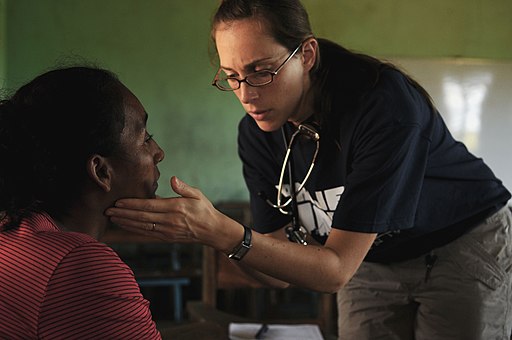A significant minority of practicing doctors do not agree that patients should always be told the whole truth, even though The Charter on Medical Professionalism insists on openness and honesty, researchers from Harvard Medical School and other institutions in Massachusetts reported in the journal Health Affairs. The Charter is backed by over 100 professional organizations globally, including the US Accreditation Council for Graduate Medical Education.
The team set out to determine how open and sincere doctors really are, and how honest they believe they should be. They carried out a survey in 2009 involving 1,891 practicing doctors from across the USA. The survey asked the physicians how closely they followed The Charter’s principles in conveying information to patients.
The authors found that:
- By far, most of the doctors agreed fully that they should be completely open to patients when talking about the pros and cons of interventions.
- The vast majority also believe that a doctor should never reveal confidential patient data to unauthorized persons.
- About one-third of them said they do not believe it is always necessary or best to disclose serious medical errors to patients
- Nearly one-fifth said they did not agree fully that physicians should never tell the patient an untruth
- Almost 40% thought it was not always necessary to tell their patients about financial relationships they might have with pharmaceutical or medical device companies
- Just over 1 in every 10 doctors said they had lied to a patient (or patients) during the preceding twelve months

“The Charter” says the doctor should be completely open and sincere with the patient; hold nothing back, and always tell the truth
The authors say that their findings should raise concerns about whether patients might not be obtaining comprehensive and accurate information from the doctors.
The researchers wrote:
“(our findings raise concerns) about whether patient-centered care is broadly possible without more widespread physician endorsement of the core communication principles of openness and honesty with patients.”
Below is a quote from The Charter:
“Commitment to honesty with patients – Physicians must ensure that patients are completely and honestly informed before the patient has consented to treatment and after treatment has occurred. This expectation does not mean that patients should be involved in every minute decision about medical care; rather, they must be empowered to decide on the course of therapy.
Physicians should also acknowledge that in health care, medical errors that injure patients do sometimes occur.Whenever patients are injured as a consequence of medical care, patients should be informed promptly because failure to do so seriously compromises patient and societal trust. Reporting and analyzing medical mistakes provide the basis for appropriate prevention and improvement strategies and for appropriate compensation to injured parties.
Commitment to patient confidentiality – Earning the trust and confidence of patients requires that appropriate confidentiality safeguards be applied to disclosure of patient information. This commitment extends to discussions with persons acting on a patient’s behalf when obtaining the patient’s own consent is not feasible.
Fulfilling the commitment to confidentiality is more pressing now than ever before, given the widespread use of electronic information systems for compiling patient data and an increasing availability of genetic information. Physicians recognize, however, that their commitment to patient confidentiality must occasionally yield to overriding considerations in the public interest (for example, when patients endanger others).
Commitment to maintaining appropriate relations with patients – Given the inherent vulnerability and dependency of patients, certain relationships between physicians and patients must be avoided. In particular, physicians should never exploit patients for any sexual advantage, personal financial gain, or other private purpose.”
Written by Christian Nordqvist